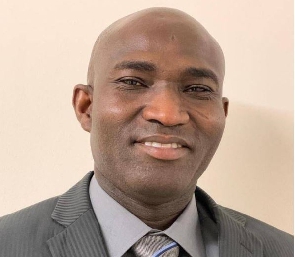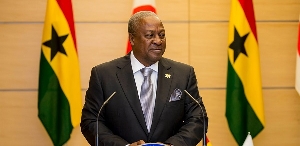A GNA feature by Miss Becky Collins, (GIJ Intern)
Accra, Nov. 29, GNA - Slowly but surely, ageing is becoming an issue that needs serious national attention than it has so far received. The available statistics on ageing indicate the country has about 7.3 per cent of them, meaning that the "senior citizens" are becoming a demographic force to reckon with.
As the saying goes: "He who does not honour age does not deserve age". This raises hypothetical questions such as: How Ghana is treating the aged? Are they given the necessary attention that they deserve? How best do our old men and women fit in our national policies? Ghana as a nation has failed in caring for it's ageing and the aged population. Issues concerning the welfare of the older generation have been treated as if they have nothing to contribute to the development of this country. However it is common knowledge that "old age is wisdom". In the olden days, older men and women were called upon for advice and their immense wisdom did help in solving problems. Today the story is different; society has lost the essence of the aged in our midst. To begin with, Ghana has not got a specific age bracket to determine who is ageing or aged.
Various programmes and documents, which could be assumed to wholly or partially target older people, have different age definitions. The 2000 population census defined the aged as people between the ages of 60 and above. At this age one is forced to retire from the Civil or Public Service.
Free Basic Medical Care is subscribed for 70 years and above while the National Health Insurance Scheme covers 60 years and above for Social Security and National Insurance Trust pensioners. People at 70 years and above enjoy exemption from the payment of the minimum premium.
The 1992 Constitution makes it categorically clear in Article 37(6b) that the "State provides social assistance to the aged...to enable them to maintain a decent standard of living". However, there is no policy that protects the rights of the ageing currently.
A draft on National Ageing Policy presented to Cabinet in 2003 has since not being given any attention. This shows how little the country is concerned about the ageing population.
In the US for instance, issues concerning the ageing are issues politicians are held accountable for.
In Ghana our politicians should be made to feature ageing policies in their manifestos if they are to win votes and be held accountable. Sadly, specialised medical care for the aged is rather rudimentary. Working on the ageing or aged demands a lot of patience that can be offered best by a geriatrician.
Sometimes the manner and ways some nurses and doctors deal with old men and women when they seek medical care is very irritating. Some doctors go to the extent of asking relatives of the aged whether they are to treat them to get better or treat them to die.
The Department of Social Welfare is trying to make life easier for the aged with limited resources and logistics.
The Department has got a home for the aged at Koforidua but with limited space. It is very necessary that the home be resourced to facilitate the better care of the residents.
Other Non-Governmental Organizations like the Helpage Ghana and Compassionate Africa Agent have joined the effort to update the knowledge of the public on ageing issues including the policies, laws and the rights of the older people.
The current perception especially with the youth that every old person possesses some form of witchcraft is another form of harassment faced by the aged especially old women.
They blame their misfortunes on the grey hair woman in the family; and call them all sorts of names and even go to the extent of killing them.
Those pronounced witches or wizards are detained in witch camps where they suffer all sorts of inhuman treatment. Their human rights are abused contrary to the dictates of the Constitution that "no person is to be deprived of his or her personal liberty except that the person has committed or has the tendency to commit a criminal offence under the laws of Ghana". One thing must, however, not be lost - each and every one of us grows older every second, minute or day. It is good to grow old in a place where age is honoured. Ghana should, therefore, strive to provide facilities for the aging and aged.
Click to view details



Health News of Tuesday, 29 November 2005
Source: GNA
















